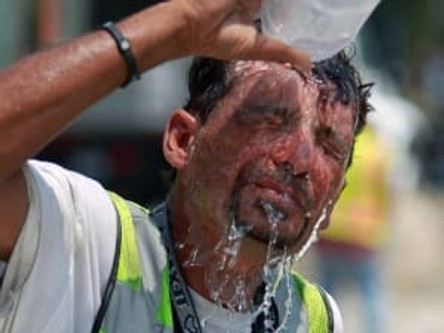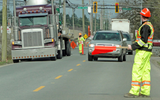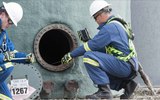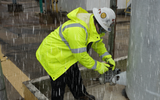A Survival Guide Guaranteed to Prevent Heat Stress
The smart approach to work-related heat stress prevention includes setting up a wellness program for employees at risk. This can include those who work outdoors and in hot environments, like firefighters, farmers, miners, bakery and boiler room workers, construction and factory workers, who wear PPE according to their work requirements.
Wellness programs aim to educate teams on how to pro-actively ensure their health is not affected in any way by working in the extreme conditions. It includes training on using PPE correctly, and on being aware of resources that are available, and of the preventive measures that need to be taken before going to work in the heat.
What can you do to educate your team?
- Stress the importance of wearing PPE even in hot weather. Wear the required PPE with added heat stress prevention features, for example, use vented helmets instead of plain ones, get cooling towels, hard hat pads, and vests, neck shades to cool down.
- Educate on the life-threatening symptoms to watch out for: hot, dry skin or profuse sweating, high body temperature, confusion, altered mental status, slurred speech, and seizures.
- Implement the following steps to assist your crew in staying safe in hot weather:
- Take your time to acclimate: work short shifts to gradually get used to heat
- Drink water before you get thirsty
- Schedule frequent breaks to cool down
- Install sunscreen dispensers in multiple locations, and encourage the team to use them
- Provide sunscreen packs and lip balms with UVA/UVB protection qualities
- Show how to treat an employee suffering from heat exhaustion before 911 arrives: cool down with cold compresses, give cool water, remove unnecessary clothing
Industries most affected by heat-related illnesses are construction, agriculture, building and grounds maintenance, landscaping, transportation, utilities, and oil and gas operations. Protect your workers from potentially fatal heat stress by training them on the dangers, symptoms and appropriate response measures.
If you have questions, please feel free to call us at 800-829-9580, or visit us online at pksafety.com.
Recent Posts
-
Promoting Safety: National Work Zone Awareness Week is April 15-19, 2024
Each year, the National Work Zone Awareness Week (NWZAW) places the spotlight on the importance o …Apr 11th 2024 -
Understanding 4 Gas Monitors: How They Work & Why They Are Important
In today’s increasingly dynamic industrial landscape, 4 gas monitors have emerged as critical com …Apr 8th 2024 -
April Showers Require Workers to Wear Hi-Vis Safety Rain Gear
While April showers bring May flowers, they also bring challenges, particularly for those working …Apr 1st 2024





